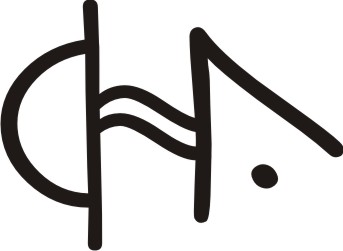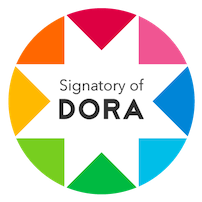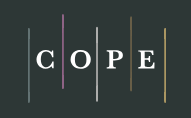Código de ética y buenas prácticas
Our publications adhere to the standards of scientific ethics expressed in Ordinance 001/2023 CD-FFyL-UNCuyo and in the Editorial Management Manual for Scientific Journals in the Social and Human Sciences (p. 119) of the Ministry of Science, Technology, and Productive Innovation of the Presidency of the Argentine Republic. Furthermore, the CHAs primarily adhere to DORA, since they refer to good practices and ethics as the set of standards that address good or bad human actions, in relation to respect between people and not concerning the legal system.
Editorial Ethics
In order to guarantee conflicts of interest in the scientific process, the IHA Editorial Team establishes as an editorial decision that authors applying to publish in the CHAs must maintain ethical and responsible conduct in order to avoid potential conflicts of interest when their publications are evaluated. To avoid duplicate articles in other electronic media or similar works (or self-plagiarism), the author must notify the Editorial Team if any of these situations have occurred in order to decide how to resolve them. Reference will be made to the resources published by Elsevier in its Editorial Ethics Resource Kit for Editors and the Legal Guide for Editors on Ethics Issues.
Fraud and Other Improper Behavior
Referees are not a system for detecting fraud. Referees are reasonably prepared to detect plagiarism or falsifications as they are experts in the subject area they are evaluating.
CHAs consider the following behaviors to be undesirable:
Fraud: deliberate deception, which may include the fabrication of data.
Falsification: or modification of data is considered a violation of research ethics. Falsification is the manipulation of research materials, equipment, or the various processes involved, as well as the change or omission of data or results. The use of other people's data requires prior authorization from the author.
Piracy: When other people's ideas are illegally copied and used.
Research Misconduct
Measures will be taken to identify and prevent the publication of articles that exhibit any type of misconduct, such as plagiarism or citation manipulation, among others. CHAs will not promote misconduct, and no misconduct will be permitted. In such cases, CHAs follow COPE guidelines.
Acknowledgment of Sources
Appropriate acknowledgment of the scientific production of other authors must always be respected. Authors must cite the publications that have influenced the determination of the nature of the work submitted.
Plagiarism: According to the Royal Spanish Academy, plagiarism is the act of copying another's works while maliciously claiming authorship. Therefore, it involves copying ideas, texts, or data without mentioning the author. Plagiarism implies a lack of originality and defines originality as scientific or artistic production that is the product of the author's own creation.
Plagiarism is considered when: there is an omission of authorship (intentional or involuntary) and quotation marks are not used in the text to indicate what has been taken from another text.
Paraphrasing is defined as when minor changes are made to a text that is not one's own. Other types of plagiarism are considered when, in a quote, the author's references have been inaccurately indicated, both in the editorial references and on the page numbers. Plagiarism is also considered when the lack of quotation marks around terms or phrases in a text that is reproduced verbatim.
We adhere to international guidelines through COPE, Version A4 horizontal, taking into account the Committee on Publication Ethics. We also adhere to organizations such as the Council of Science Editors, based on its CSE White Paper on Promoting Integrity in Scientific Journal Publications, as well as the White Paper on Publication Ethics, and the Expressions of Gratitude. Among other guidelines, we consider how to Avoid Plagiarism, Self-Plagiarism, and Other Questionable Writing Practices: A Guide to Ethical Writing in: ORI, The Office of Research Integrity – ORI – U.S. Department of Health and Human Services – Office of Research Integrity. In addition, the CHA adheres to the policies of Open Access Journals (DOAJ, https://doaj.org), whose mission is to organize, maintain, and develop a reliable source of information about open access academic journals on the web; to increase visibility and dissemination; and to support the scholarly communication system.
The CHA uses software tools provided by Google and Google Scholar.
Policy on the Use of Artificial Intelligence Tools in the Art History Notebooks
- Ethical and responsible use of artificial intelligence tools
The use of artificial intelligence (AI) tools should be oriented toward improving the research processes being developed. Their use is under the supervision and responsibility of the authors. The use of AI as a tool can be useful at various stages of the research process, but the results it produces are not considered original content.
Authors are responsible for reviewing, verifying, and correcting any results generated by AI, taking into account potential biases that may arise from its use during the development of the research.
Authors must commit to using AI tools responsibly, respecting intellectual property rights, data integrity, and avoiding manipulation, the generation of misleading content, or plagiarism that could affect the credibility of the work.
- Transparency and declaration of the use of AI tools
In line with the needs for transparency and equity, the use of AI cannot replace critical analysis or the research process, but rather as a complementary tool that promotes quality and clarity in manuscripts. Authors who use AI in any part of their manuscript development process must explicitly declare its use. It is essential that authors clearly explain which AI tools they used, at what point in the research, and how they contributed to the research report.
This declaration should be included in the methods section, promoting transparency and strengthening ethics in scientific publication. Achieving transparency not only fosters trust in the research process but also allows other researchers to replicate or evaluate the work more effectively.
- Prohibition of AI authorship
In accordance with the ethical principles of scientific publications, authorship is strictly human. AI authors cannot be listed as authors, co-authors, or as part of the bibliographic references of any article. Authorship entails responsibilities that technologies cannot assume.
2 Universidad Regional Autónoma de los Andes, Ecuador
Any use of AI is like any other tool, but without granting acknowledgment of authorship, thus maintaining the integrity of the scientific process.
Using human authors only helps maintain academic integrity and clearly define their responsibility. Authors are responsible for the accuracy, integrity, and originality of their research work, including the use of AI.
-Use of AI Tools in Images, Graphs, and Figures
The use of generative AI for the creation or alteration of images is not permitted in scientific articles. However, in the case of research whose design or methodology uses AI tools for the creation of figures, graphs, or visual analysis, the authors must describe their process in detail in the methods section.
It must be ensured that any images or figures included maintain authenticity and do not alter the research results.
-On the Use of AI Tools in Data Generation
Data generation for research cannot be achieved through AI tools. Data collection and interpretation must be based on the rigorous application of techniques and instruments by the researchers, detailed in the methods section.
-Role of Editors and the Editorial Review Process
Editors must oversee and ensure that authors comply with these policies.
The importance of editors reviewing and updating statements on the use of AI tools is emphasized to avoid misunderstandings or malpractice that affect the scientific quality of scientific articles.
If there is any doubt or ambiguity regarding the use of AI tools in a manuscript, editors may request additional clarification before accepting and publishing the article.
The journal's declaration of originality and copyright must include reference to the policies on the use of AI tools for the authors' information.
Finally, editors will oversee the development of this policy, which will be refined if necessary or if the conditions under which it was developed change.
Any use of AI is considered as an additional tool, but without acknowledgment of authorship, thus maintaining the integrity of the scientific process.
Using human authors only helps maintain academic integrity and clearly define their responsibility. Authors are responsible for the accuracy, integrity, and originality of their research, including the use of AI.
Editorial Practices in the CHA on Gender Equality
It is recommended that studies presented in the CHA consider the importance and relevance of sex/gender variables in research proposals.
Furthermore, the information on which a research is based should be disaggregated by sex/gender, allowing for identification.
We must emphasize the importance of using inclusive language, as stated by the author Mugarik Gabe (2010) https://www.mugarikgabe.org/wp-content/uploads/2019/03/06.comunicacion_genero.pdf

















_00.07_.55_2.png)





